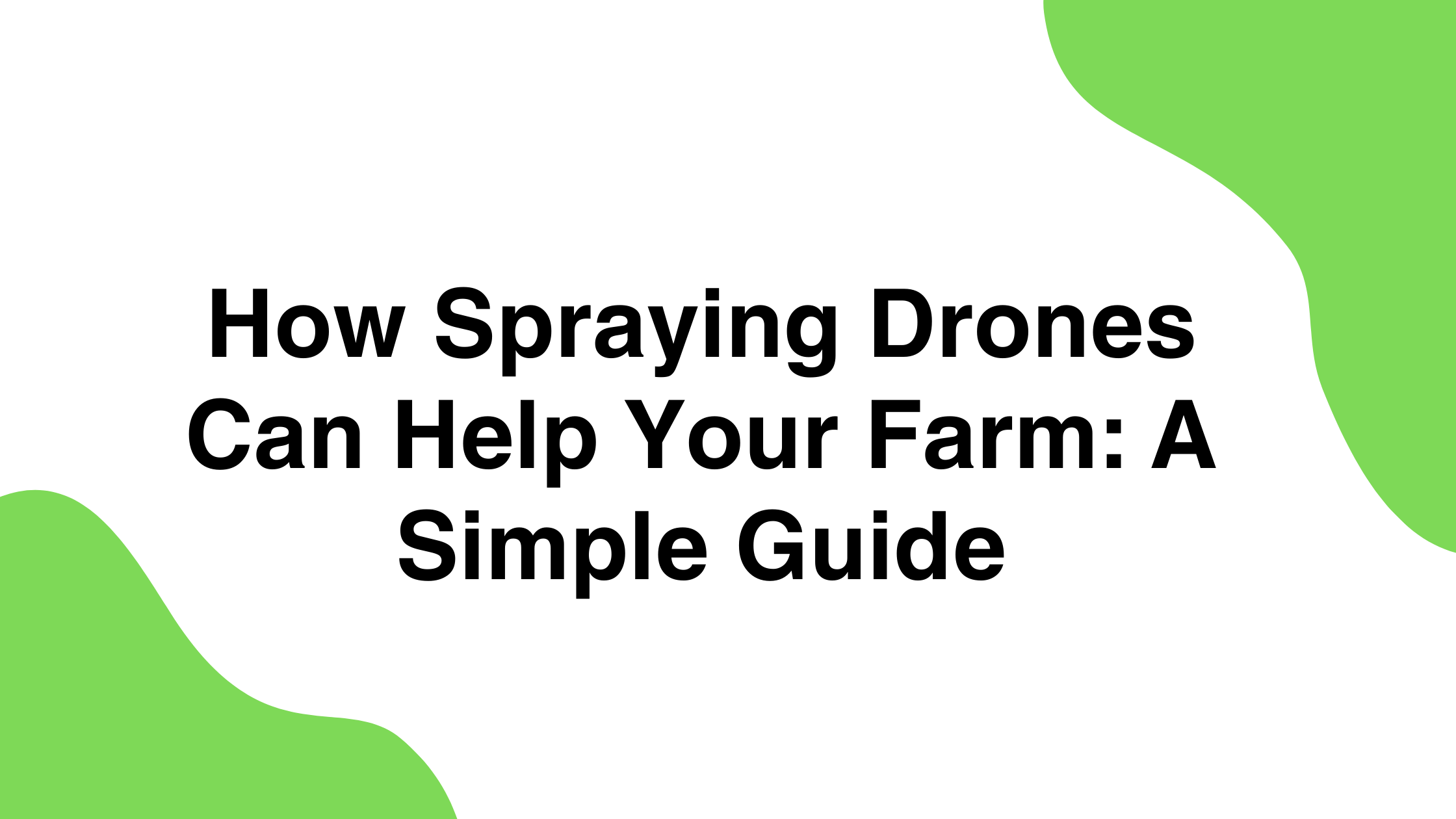Farming is getting smarter with new technology. One of the best tools for modern farmers is the spraying drone. These drones can spray pesticides, fertilizers, and even water, making farming easier and more efficient.
In this blog, we will explain how spraying drones work and how they can benefit your farm.
What Are Spraying Drones?
Spraying drones are flying machines designed to spray liquids over crops. They work automatically and can cover large areas quickly. These drones use GPS and smart sensors to spray the right amount of chemicals in the right place.
Benefits of Spraying Drones
1. Saves Time and Labor
Traditional spraying takes a lot of time and effort. Farmers have to walk through fields or use tractors, which can be slow. Drones can finish spraying in minutes, reducing the need for extra labor.
2. Covers Large Areas Quickly
Drones can fly over large fields and spray crops much faster than manual methods. This helps farmers complete their work quickly, even in big farms.
3. Uses Less Pesticide and Fertilizer
Drones spray chemicals in a precise way, so there is less waste. This saves money on pesticides and fertilizers while protecting the environment.
4. Protects Farmers from Harmful Chemicals
Manual spraying exposes farmers to dangerous chemicals, which can cause health problems. Drones allow spraying from a safe distance, keeping farmers healthy.
5. Reaches Difficult Areas Easily
Some farms have uneven land, waterlogged fields, or steep hills where tractors and workers cannot go easily. Drones can reach these areas and spray without any problems.
6. Improves Crop Health and Yield
With better spraying, crops receive the right amount of nutrients and protection from pests. This leads to healthier crops and a higher yield at harvest time.
How to Start Using Spraying Drones on Your Farm
1. Choose the Right Drone
Different drones have different capacities. Select a drone based on your farm size and needs. Popular options include DJI Agras, Garuda Aerospace, and Krishi Rakshak drones.
2. Follow Government Rules
In India, the Directorate General of Civil Aviation (DGCA) has rules for using drones. Farmers need to register their drones and follow safety guidelines for spraying.
3. Learn How to Use the Drone
Farmers can take training courses to understand how to fly and maintain the drone properly. Many agriculture centers offer training programs.
4. Start with a Small Area
Before using the drone on the whole farm, test it on a small section to check the spray pattern and efficiency.
5. Maintain the Drone Regularly
Cleaning the nozzles, checking the battery, and updating the software are important to keep the drone working well.
Conclusion
Spraying drones are a game-changer for farming. They save time, reduce costs, and improve crop yield. As more farmers start using drones, farming will become easier and more productive.
If you are a farmer, consider investing in a spraying drone to improve your farm’s efficiency. The future of farming is in the sky!

